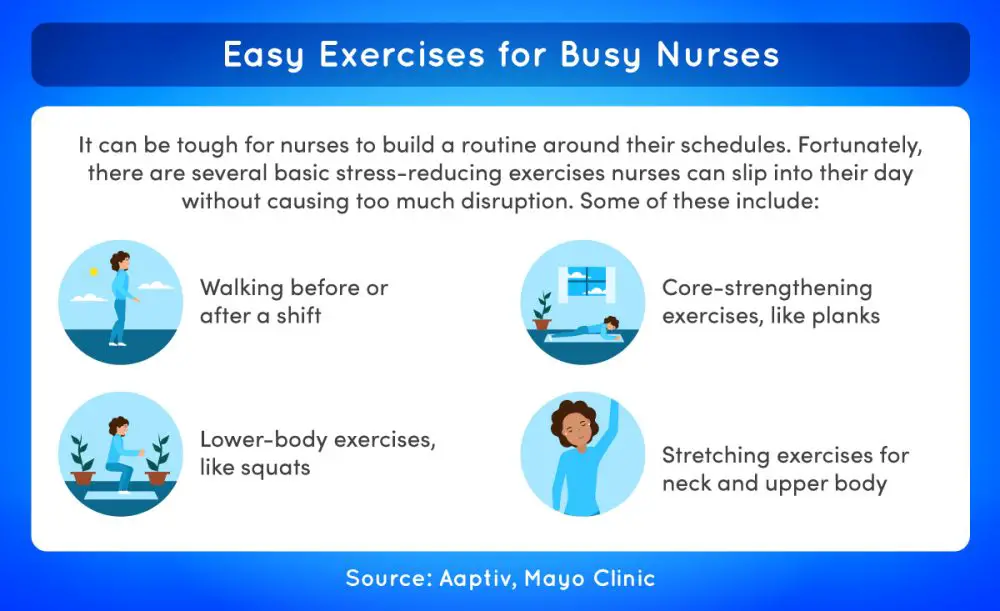In this article, we’ll be discussing the impact of anxiety on baby boomers. You’ll learn about how anxiety affects this generation, the factors contributing to increased anxiety levels, and the potential consequences it can have on their mental and physical well-being. We’ll also explore coping strategies and resources available to help baby boomers manage anxiety and live a fulfilling life. So, let’s dive right into it and understand more about the impact of anxiety on baby boomers together.
The Impact of Anxiety on Baby Boomers
Anxiety is a common mental health condition that affects individuals of all ages. However, as we age, the impact of anxiety on our lives can become more pronounced and significant. In particular, the baby boomer generation, born between 1946 and 1964, is facing unique challenges that contribute to higher rates of anxiety. Understanding these challenges and their implications is crucial for providing the necessary support and resources to this demographic. In this article, we will explore the definition and causes of anxiety, different types of anxiety disorders, and delve into the specific impact of anxiety on baby boomers.

This image is property of psychnews.psychiatryonline.org.
Definition and Causes of Anxiety
Anxiety can be defined as a persistent feeling of fear, worry, or unease. It is a natural response to stress or danger and can serve as a valuable tool for self-preservation. However, when anxiety becomes excessive, prolonged, and interferes with daily functioning, it may indicate an anxiety disorder. Anxiety disorders can be caused by a combination of biological, psychological, and environmental factors.
Different Types of Anxiety Disorders
There are several types of anxiety disorders that can impact individuals differently. Generalized Anxiety Disorder (GAD) is characterized by persistent and excessive worry about various aspects of life, such as work, health, or relationships. Panic Disorder involves recurring panic attacks, which are sudden episodes of intense fear and physical symptoms like rapid heartbeat and shortness of breath. Social Anxiety Disorder is characterized by an intense fear of social situations and a constant worry about being judged or embarrassed. Other types of anxiety disorders include specific phobias, obsessive-compulsive disorder (OCD), and post-traumatic stress disorder (PTSD).
Exploring the Baby Boomer Generation
The baby boomer generation is known for its significant impact on society and culture. As this generation has aged, they have faced a unique set of challenges that contribute to increased rates of anxiety. As baby boomers entered retirement, they encountered socioeconomic challenges such as financial insecurity and uncertainty regarding healthcare costs. Additionally, changing familial dynamics, including empty nest syndrome and caring for aging parents, can lead to increased stress and anxiety.
Prevalence of Anxiety Among Baby Boomers
Research suggests that anxiety rates among baby boomers have been steadily increasing in recent years. According to the National Institute of Mental Health (NIMH), about 15% of adults aged 60 and older experience anxiety symptoms that meet the criteria for a diagnosable disorder. However, the actual prevalence may be even higher, as older adults are often less likely to seek mental health treatment or report their symptoms.

This image is property of www.wellmark.com.
Socioeconomic Challenges
One significant factor contributing to anxiety among baby boomers is the socioeconomic challenges they face. Many baby boomers are reaching retirement age with insufficient savings and limited access to pensions or retirement plans. The uncertainty surrounding financial stability in their later years can lead to significant distress and anxiety. Furthermore, rising healthcare costs and concerns about access to quality healthcare services can exacerbate anxiety about aging and overall well-being.
Changing Familial Dynamics
As baby boomers transition into their elder years, they often experience changing familial dynamics. Empty nest syndrome, the feeling of loss and loneliness that can occur when children leave home, can be a significant source of anxiety for parents. The shift from being actively involved in raising a family to having an empty house can create feelings of purposelessness and isolation. Additionally, many baby boomers find themselves in a caregiving role for their aging parents, which comes with its own set of challenges and stressors.
Health Issues and Medical Conditions
Another significant factor contributing to anxiety among baby boomers is the presence of health issues and medical conditions. As we age, the likelihood of developing chronic illnesses and experiencing physical decline increases. Dealing with the symptoms, treatment regimens, and uncertainties associated with health conditions can be overwhelming and lead to heightened anxiety. The fear of losing independence and becoming reliant on others for daily activities can also contribute to anxiety among baby boomers.
Physical Health Implications
Anxiety not only has psychological and emotional impacts but also has a significant effect on the physical health of baby boomers. Chronic anxiety can contribute to the development or worsening of various health conditions. Research has shown that prolonged anxiety can increase the risk of cardiovascular diseases, weaken the immune system, and exacerbate pain from conditions such as arthritis. The physical toll of anxiety can be significant and further complicate the overall well-being of baby boomers.

This image is property of gray-wlox-prod.cdn.arcpublishing.com.
Mental and Emotional Impact
The mental and emotional impact of anxiety on baby boomers should not be underestimated. Anxiety can lead to feelings of constant worry, irritability, restlessness, and difficulty concentrating. Persistent anxiety can also contribute to the development of depression and other mood disorders. The emotional toll of anxiety can significantly impact one’s quality of life and enjoyment of daily activities.
Social and Interpersonal Consequences
Anxiety often leads to avoidance behaviors, which can have a negative impact on social interactions and relationships. Baby boomers experiencing anxiety may avoid social gatherings or activities that they once enjoyed, leading to feelings of isolation and loneliness. The fear of being judged or embarrassed can hinder the formation of new relationships or the maintenance of existing ones. These social and interpersonal consequences of anxiety can have detrimental effects on the overall well-being of baby boomers.
Therapeutic Approaches
There are various coping mechanisms and treatment options available to help baby boomers manage their anxiety. Cognitive-behavioral therapy (CBT), a therapeutic approach that focuses on challenging negative thought patterns and developing coping strategies, has been proven effective in treating anxiety disorders. CBT can help baby boomers reframe their thoughts, develop relaxation techniques, and apply problem-solving skills to manage their anxiety.
Holistic and Alternative Treatments
In addition to traditional therapeutic approaches, baby boomers may also find benefit from holistic and alternative treatments for anxiety. Practices such as mindfulness meditation, yoga, and acupuncture have been shown to reduce anxiety levels and promote overall well-being. These approaches focus on the mind-body connection and can provide individuals with additional tools to manage their anxiety.

This image is property of gray-wlox-prod.cdn.arcpublishing.com.
Support Systems and Community Resources
Building a strong support system and accessing community resources can be vital for baby boomers experiencing anxiety. Support groups specifically tailored to older adults can provide a safe space for sharing experiences and gaining valuable insights from others facing similar challenges. Community resources, such as senior centers and mental health clinics, may offer counseling services, educational programs, and referrals to support groups.
Recognizing Early Warning Signs
Early recognition of anxiety symptoms is crucial for implementing preventative measures and early intervention. Baby boomers and their loved ones should be aware of the warning signs, such as excessive worrying, irritability, sleep disturbances, and physical symptoms like muscle tension or rapid heartbeat. Recognizing these signs allows for timely intervention and the implementation of strategies to manage anxiety effectively.
Implementing Lifestyle Changes
Proactive lifestyle changes can significantly impact anxiety levels among baby boomers. Engaging in regular physical exercise, maintaining a healthy diet, and getting enough quality sleep can all contribute to overall well-being and reduce anxiety symptoms. Additionally, baby boomers can benefit from engaging in stress-reducing activities such as hobbies, spending time with loved ones, and practicing relaxation techniques.
Proactive Mental Health Support
It is crucial for baby boomers to access proactive mental health support and resources. Healthcare providers should offer routine mental health screenings to identify anxiety symptoms early on and provide appropriate referrals for further evaluation or treatment. Telehealth services have become increasingly popular and accessible, providing convenient and confidential options for seeking mental health support.

This image is property of blogsmedia.lse.ac.uk.
Addressing Generation-Specific Needs
Healthcare providers and policymakers must address the generation-specific needs of baby boomers when developing mental health services. Baby boomers grew up during a time when mental health was stigmatized and often misunderstood. Healthcare professionals should receive specialized training to provide age-appropriate and culturally sensitive care for this demographic.
Reducing Stigma and Increasing Awareness
Reducing the stigma surrounding mental health remains essential when addressing anxiety among baby boomers. Public awareness campaigns, educational programs, and open discussions about anxiety can help break down the barriers to seeking mental health treatment. By promoting understanding and empathy, we can encourage baby boomers to prioritize their mental health and seek the support they need.
Enhancing Access to Quality Mental Healthcare
Improving access to quality mental healthcare services is crucial for baby boomers experiencing anxiety. This may involve enhancing insurance coverage for mental health services, expanding the availability of mental health professionals, and decreasing wait times for appointments. Government entities and policymakers must allocate adequate funding and resources to ensure that mental healthcare services are accessible to all individuals, regardless of their socioeconomic status.
Promoting Self-Care Practices
Promoting self-care practices among baby boomers can significantly contribute to their resilience and psychological well-being. Encouraging regular exercise, healthy eating habits, and adequate sleep can have a positive impact on anxiety levels. Baby boomers should also prioritize engaging in activities they enjoy, cultivating meaningful relationships, and setting aside time for relaxation and stress management.
Developing Coping Skills
Developing coping skills is essential for baby boomers to manage anxiety effectively. Coping skills can include relaxation techniques like deep breathing exercises or mindfulness meditation. Constructive problem-solving, reframing negative thoughts, and seeking support from loved ones or mental health professionals are all valuable coping strategies. By developing a repertoire of coping skills, baby boomers can navigate anxiety-inducing situations with greater ease and resilience.
Fostering Positive Psychology Approaches
Fostering positive psychology approaches can help baby boomers cultivate a more optimistic and resilient mindset. Positive psychology focuses on building strengths, fostering gratitude, and promoting purposeful living. Baby boomers can benefit from activities such as keeping a gratitude journal, engaging in volunteer work, or pursuing hobbies that bring them joy and fulfillment.
Tailoring Healthcare Services for Baby Boomers
Healthcare providers must tailor their services to meet the specific needs of baby boomers experiencing anxiety. This may involve implementing routine mental health screenings during senior wellness visits, providing educational resources about anxiety management, and offering age-appropriate therapy options. By acknowledging the unique challenges faced by baby boomers, healthcare providers can ensure they receive the support required to manage anxiety effectively.
Integrating Mental Health into Primary Care Settings
Integrating mental health into primary care settings is crucial for identifying and addressing anxiety among baby boomers. Collaborative care models that involve a team-based approach, including primary care physicians, mental health professionals, and social workers, can enhance the coordination and delivery of mental healthcare. By integrating mental health services into primary care, baby boomers can receive comprehensive and holistic support.
Advocating for Policy Changes and Funding
Advocating for policy changes and increased funding is necessary to address the mental health needs of baby boomers effectively. Policymakers should prioritize mental health initiatives and allocate funding to improve access to mental healthcare services. By investing in research, training, and mental health infrastructure, policymakers can create a supportive environment for baby boomers and reduce the burden of anxiety on this demographic.
Conclusion
Anxiety is a complex and multifaceted issue that significantly impacts the lives of baby boomers. The challenges faced by this generation, including socioeconomic factors, changing familial dynamics, and health issues, contribute to higher rates of anxiety. Recognizing the physical, mental, and emotional implications of anxiety on baby boomers is crucial for providing targeted support and resources. By implementing preventative measures, enhancing mental healthcare services, and promoting resilience, we can foster the well-being of baby boomers and ensure that their mental health needs are met. It is essential that we prioritize addressing anxiety in this demographic and work towards building a society that supports and values the mental health of all individuals.


